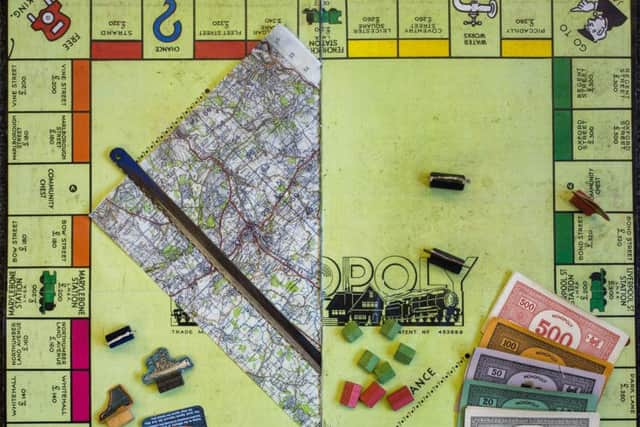Get out of jail free - how Yorkshire firm's Monopoly boards helped prisoners of war to escape


In America in the early 1900s, Lizzie Magie created a game called The Landlord’s Game to teach people about land ownership and the risks that came with it.
The game was self-published and only a few people bought it.
Advertisement
Hide AdAdvertisement
Hide AdOne such person was Charles Todd who played the game with his friends Charles and Esther Darrow.


Charles Darrow had lost his job after the Wall Street Crash in 1929.
He asked Todd for the official rules, modified the game and sold it to Parker Brothers, a toy and game manufacturer.
Parker Brothers licensed the game for sale outside America and John Waddington Ltd, Leeds, became the licensee for Monopoly in UK.
Advertisement
Hide AdAdvertisement
Hide AdIn December 1939, three months after the start of World War Two, MI9, the branch of the secret service responsible for escape and evasion, was set up.
It was made clear that it was the duty of all British servicemen captured by the enemy to escape if possible.
It was Christopher Clayton Hutton, an MI9 intelligence officer, who came up with the Waddington project.
John Waddington Ltd already had the technology to print on cloth and MI9 carried out trials of maps printed by Waddingtons on silk, rayon and tissue paper as early as 1940.
Advertisement
Hide AdAdvertisement
Hide AdThe famous Yorkshire firm then began by printing silk maps for supply to air crews, British and later American.
Silk maps had the added advantage that they didn’t make noise as they were being held or stored, especially important for escaping prisoners. A game-based escape plan was cunningly hatched between the Government and Waddingtons.
During the war, Germany allowed humanitarian groups like the Red Cross to distribute care packages to prisoners of war and one of the categories that could be included was ‘games and pastimes’.
The British military took advantage of this. While MI9 never used Red Cross parcels for escape and evasion items, they did create fake charities such as Licensed Victuallers’ Sports Association, the Prisoners’ Leisure Hour Fund, Licensed Victuallers’ Prisoners Relief Fund.
Advertisement
Hide AdAdvertisement
Hide AdThrough these fake charities, they sent packages to their POWs featuring clandestine escape kits masquerading as Monopoly games with compasses and files disguised as playing pieces, French, German and Italian bank notes hidden below the Monopoly money and maps concealed within the board itself.
Before departing on missions, RAF air crews were told that, if they were captured, they should look for the Monopoly games in the care packages sent to them and the escape kit hidden within them.
The ‘special edition’ Monopoly used a code to indicate which map was concealed inside a board: a full stop after Marylebone Station meant a map of Italy; a full stop after Mayfair meant a map of Norway, Sweden and Germany, and one after Free Parking meant a map of Northern France, Germany and its frontiers.
Once PoWs retrieved the escape kit from within, they were instructed to destroy the games in order to keep the Monopoly secret from the enemy. And the secret, though unfortunate for those of us who would love to see a “special edition” Monopoly game, worked. British historians estimate that Waddingtons Monopoly boards helped thousands of captured servicemen escape from their prison camps.
Quite literally passing go and getting out of jail free!